FUNDRAISING FOR A CURE
Donating is simple, fast and totally secure. Your details are safe with us and we will never sell them
Target NET
Investigation of the molecular, immunological and genetic features associated with neuroendocrine tumour dissemination, progression and response to treatment.
What is the purpose of this study?
Neuroendocrine Tumours (NETs) are relatively rare in our population. We are a specialist service for the treatment of NETs, and we are always looking to improve on the treatments we provide. To do this we need to understand more about NETs; particularly why they occur and what promotes their development. This greater understanding will hopefully permit us to develop improved treatments in the future. The research will involve studying tissue samples from patients who are undergoing investigation or treatment for NETs. These samples will be examined in detail for the molecular, immunological and genetic changes that have occurred for NET to develop, and also for the body’s immune response to the disease.
This study is being organised by doctors and scientists from University Hospital Southampton/University of Southampton in partnership with experienced doctors and scientists from other Universities, Hospitals and Laboratories. Funding is through research grants held by the investigators, in particular the Southampton NIHR Experimental Cancer Medicine Centre funded by Cancer Research UK and the UK Department of Health, PLANETS and the Robert White fund. The doctors conducting the study are not being paid to do so.
In layman’s terms, because neuroendocrine tumours are relatively rare, not enough is known about them. However, Southampton is very unique in the sense that we have been very involved with treating patients with NETs and now have a vast experience in dealing with them with a specialised MDT team and a large number of patients with experience of living with NETs.
TARGET NET is asking patients if we can take some tissues (both normal and the neuroendocrine tissue) when they have surgery. We want to be able to store them (for studies now, and being carried out in future), and also run lots of complicated experiments and tests on them. We will also be running experiments to see what kind of relationship NETs have with the immune cells. There are new emerging cancer drugs that ‘boost’ your immune cells into fighting the tumour cells. We want to see if NETs could be the type of cancer we can treat with this new form of treatment in the future.
In the background of all of this, running different experiments and genetic studies on the samples will also help understand NETs as a whole and why they are so special and different to other types of cancers so that we can educate and improve the information we give when patients are diagnosed with NETs.
How does TargetNET study affect you as a patient?
There are several ways in which you may be invited to take part in the study. The researchers involved in the study that you may come across are Lulu Tanno, Salma Naheed and Ben Johnson. We are all very friendly and if you have any concerns or questions about the study please don’t hesitate to contact us. If you would like more information, you can also speak to your consultants or specialist nurses and we can get in touch with you that way.
If you are going to have surgery, you may be approached by one of the TargetNET researchers in the outpatient clinic or on the day of surgery. We will ask you if it is possible to take some blood samples after you are asleep, from the needle that anaesthetists will put in as part of your anaesthetic. Also, after the surgeon has removed your NET in the operation, researchers will take a small sample of your NET and the normal part close by to use for experiments.
If you had surgery or biopsy taken in the past, you may still be invited to take part in TargetNET study. In this setting, the researchers will be using the excess tissue sample that has been stored from when you had the surgery/biopsy and using this for experiments.
TargetNET Team
Lulu Tanno – Robert White Research Fellow
Lulu Tanno is a senior trainee surgeon who was appointed as the Robert White NET research fellow in October 2017. She graduated from University College London where she obtained BSc in Molecular Medicine as well as her medical degree in 2008. Miss Tanno’s surgical training has been primarily based in Wessex and she has worked in various District General and teaching Hospitals in the region. She developed an interest in neuroendocrine tumours during her rotation with the hepatobiliary team in Southampton General Hospital. She is excited to have been given this opportunity to be involved in pioneering research into neuroendocrine tumours.
Salma Naheed – PLANETS Clinical Research Fellow
Salma Naheed graduated from St George’s Hospital Medical School (London) in 2007, having completed an Intercalated Batchelors Degree in Healthcare Law and Ethics at King’s College, London. She is a Specialist Registrar in Medical Oncology at University Hospital Southampton. Salma is currently funded by PLANETS as a clinical research fellow in neuroendocrine tumours, a post she commenced in November 2017.
Latest Update
Research has shown that there is interaction between cancer tumours and the immune system. This immune interaction is very important in understanding how aggressively the tumour may behave. This can be seen in the intensity of the infiltration by various types of immune cells (T lymphocytes, B lymphocytes, Macrophages and others) in the cancer, however very little is known about this process in the context of NETs. Over the past two years, Lulu and Salma have been looking for evidence of the quality and strength of possible anti-tumour immune responses in the tumour samples from patients with pancreatic and small bowel NETs who had surgery at Southampton. In order to examine a large number (191 patients) of tumours with maximal efficiency, Ltissue micro-arrays (TMAs) were made which involved taking very small samples (1mm) from each tumour and putting them all on a single microscope slide. The slide(s) can be stained to show different types of immune cells and these can then be counted down a microscope. So far, it has been found that there are immune cells in NETs but the numbers of cells in the tumours are much lower than what has been seen in other cancers. It appears that the way tumours interact with the immune cells is different depending on where the tumour comes from i.e. whether it is from the pancreas or small bowel, and also when the tumour has spread to the liver. These are all very exciting findings but with so little research, further experiments are required to see if we can understand why there are fewer immune cells in NETs compared to other cancers and also to develop an understanding on how the tumour communicates with the different immune cells and what makes pancreas and small bowel NETs different from each other.
How is the money raised spent?

PLANETS Receive £10,000 Grant from The Hospital Saturday Fund
Thank you to John Greenwood, Trustee of the The Hospital Saturday Fund, for visiting us on Monday and bringing this incredible grant of £10,000 to support our IORT (Intra Operative Radiotherapy) machine. This will enable us to continue delivering this lifesaving treatment at University Hospital Southampton – the only centre in the UK currently offering this unique targeted form of …
Subscribe to our Newsletter
Get informed about the latest news straight to your inbox


